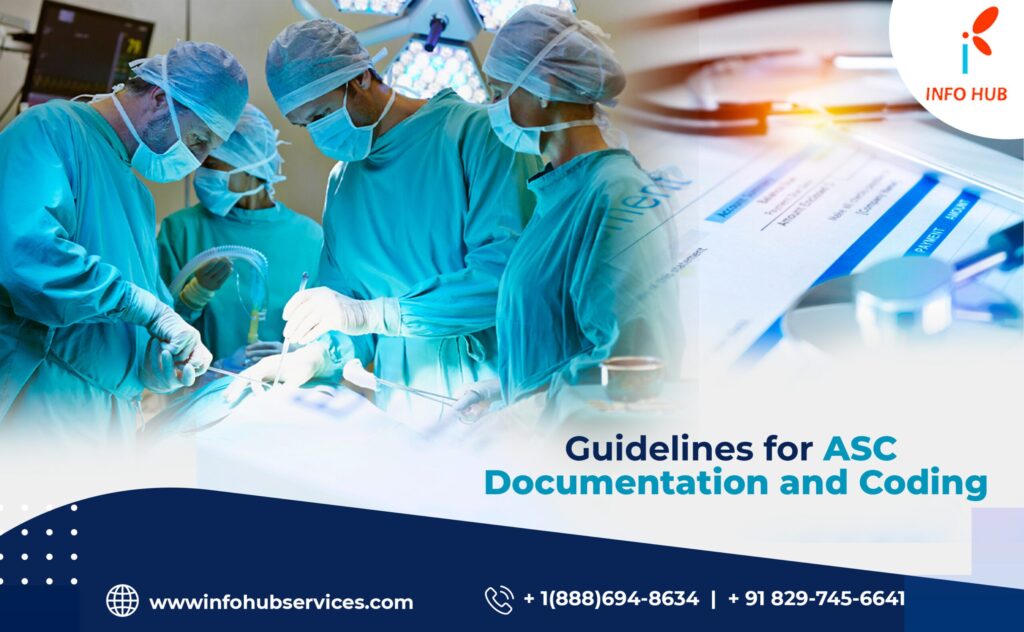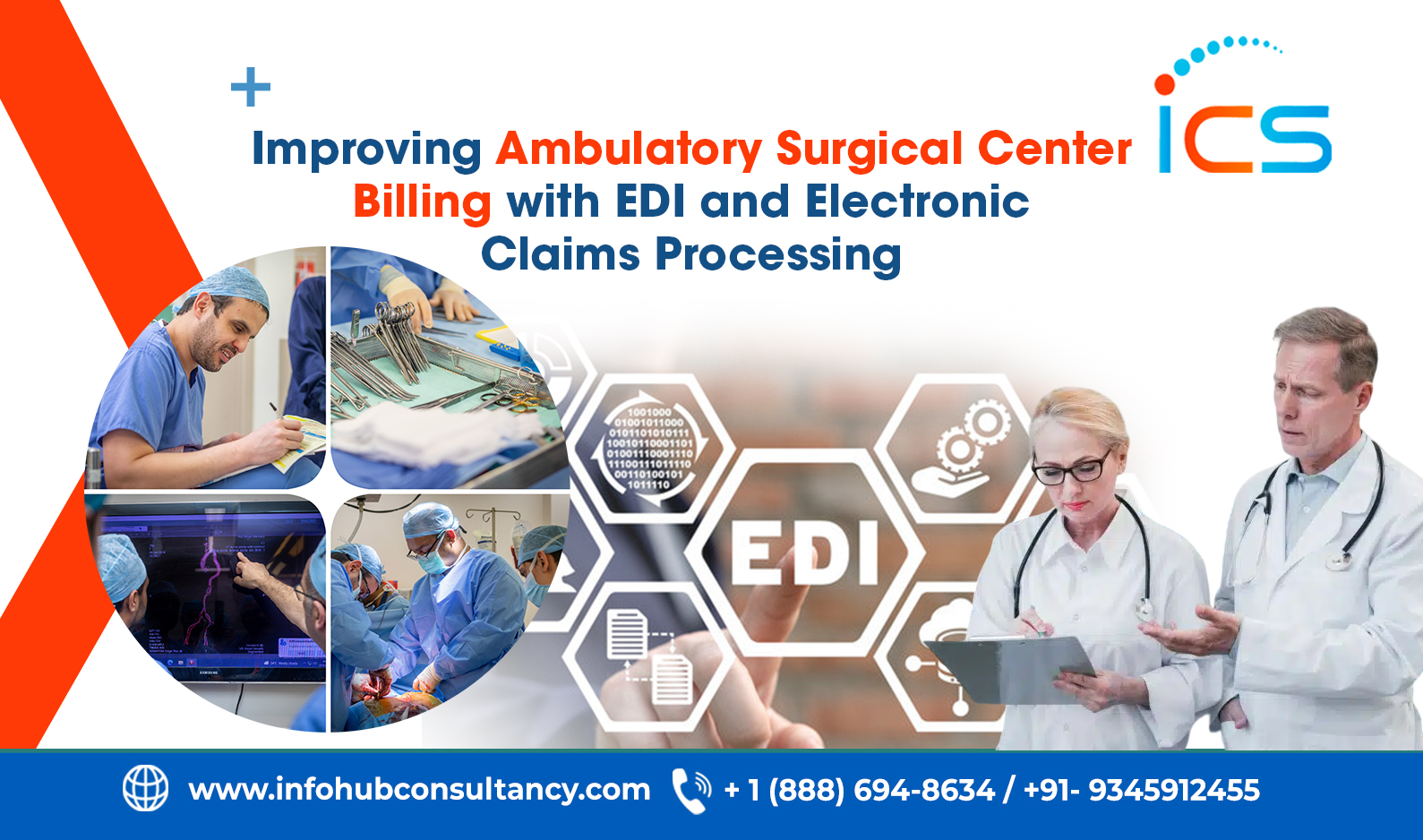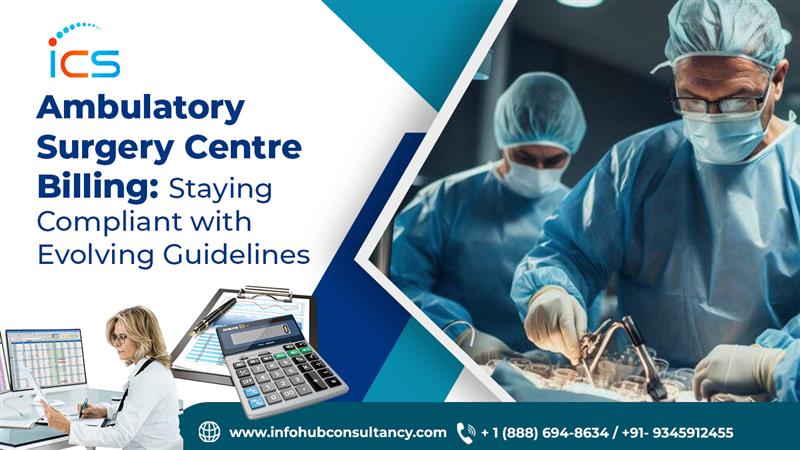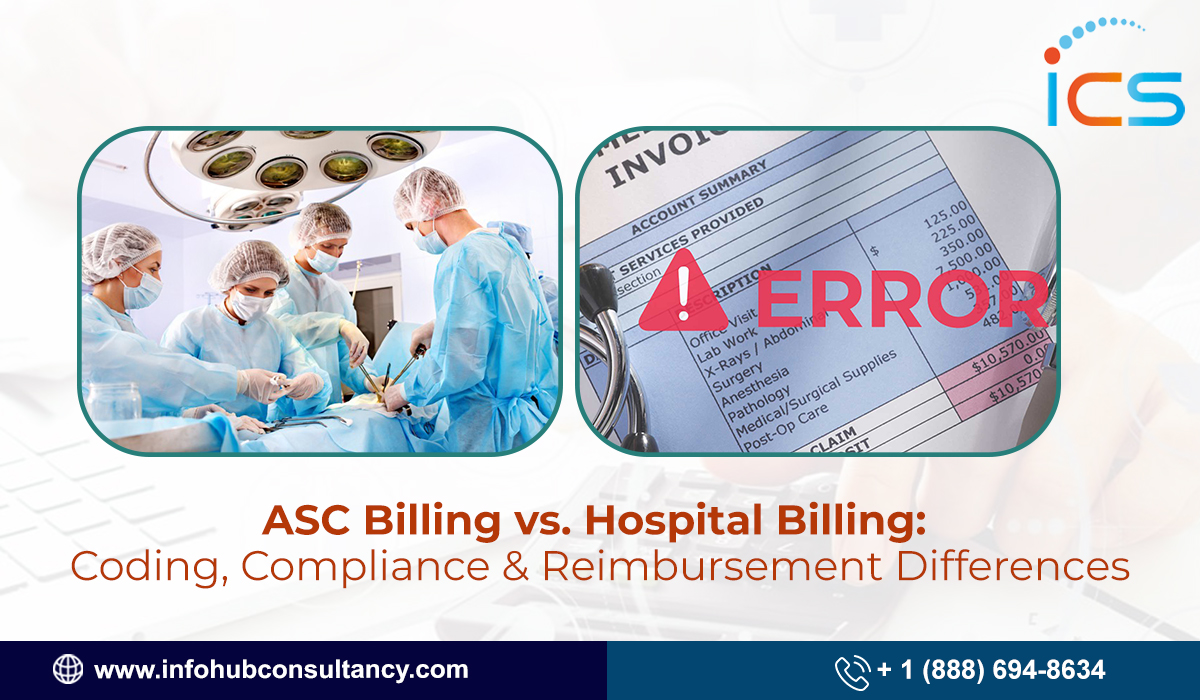Many federal and state laws and regulations, as well as billing policies, place strict restrictions on the ASC practices. Everything pertaining to ASCs, including their day-to-day activities and payment policies, is defined in the regulations.
The majority of patients at ambulatory surgery centers are covered by Medicare, thus they are required to abide by its rules. ASCs must abide by other rules too, such as the Health Insurance Portability and Accountability Act (HIPAA). Ambulatory surgery centres’ (ASCs’) billing practises can vary depending on the location of the treatment and the type of facility.
Although a hospital-run institution can also offer ASC services, in order for it to be recognised by Medicare, it must enter into a contract with the Centers for Medicare & Medicaid Services (CMS).
Guidelines for ASC Coding and Documentation
It might be challenging to comprehend the requirements for ASC documentation and coding, and any errors must be corrected by a specialist. Let’s take a look at the basics ASC coding and documentation.
1. Billing and Coding
ASCs use a mix of physician and hospital billing. Although ASCs and physicians both primarily use CPT® and HCPCS Level II codes to bill for services, some payers will let an ASC to charge ICD-10-CM procedure codes. Even some payers establish implant reimbursement on the classification of revenue codes. It’s crucial to file claims using the correct format. Medicare uses the CMS-1500 claim form and pays for ASC services under Part B. The CMS-1500 form is accepted by some third-party carriers, whereas the UB04 is permitted by others.
2. Certification
All ASCs must meet the Conditions for Coverage (CFC) certification standards and sign a contract with Medicare in order to be covered by Medicare. ASCs may need to meet the certification standards imposed by Medicare’s Conditions for Coverage even for insurance company coverage. The CFC criteria specify every area of ASC, including patient care, infrastructure, and billing, and they include a complete list of rules. The CMS-produced State Operations Manual, which more precisely represents the provisions of the CFC, can help ASCs understand the CFC requirements. Moreover, two additional appendices pertaining to life safety codes must be followed by ASCs.
3. Coding and Payment
A particular CPT code has been allocated for each Medicare-covered service, and it bears about the same weight as any other procedure carried out under an outpatient APC system. These codes are then converted to a typical flat fee using special ASC conversion factors.
The same regulations apply to each claim and allow it to cover a variety of outpatient operations. There may also be coverage for imaging and other associated procedures that are necessary for the surgical surgery itself. Nevertheless, these additional treatment costs are not reflected in a separate statement and are instead paid for each claim separately. Moreover, payments are not made at a uniform rate for every procedure in case many procedures are billed under a single claim. Using the multiple procedure reduction policy, the first procedure is paid for at 100% of the permitted rate while any subsequent operations are paid for at 50% of the regular procedure rate.
4. Quality Reporting
To maintain the standards of quality for all ASCs, CMS has mandated reporting of all facts on metrics. If the quality measures are not reported, Medicare may cut its reimbursement rate in the future. The documentation and coding requirements for ambulatory surgery centres (ASCs) can be onerous, and coders with little expertise in this area are more likely to make billing mistakes that lead to recurrent claim denials and long delays in reimbursements. Your practise may lose money from this, and it may also have a detrimental impact on the salaries of the entire medical team.
How Info Hub Consultancy Services Can Help
ICS is a leading medical billing company In India that assists ASCs with the right expertise to help grow revenue and profits. We will identify loopholes to help boost the quality of your medical documentation and maximize reimbursement. We give you access to certified coders with experience and expertise in ambulatory surgical center coding. Since Info Hub Consultancy Services (ICS) has dealt with the financial aspects of ASCs for a number of years, we are well-versed in how to reduce ASC reimbursement denial rates as well as increase the profitability of your practice. Outsource medical billing services to ICS for easy coding and documentation solutions for ambulatory surgical centers.

 4 mins read
4 mins read 








.png)

